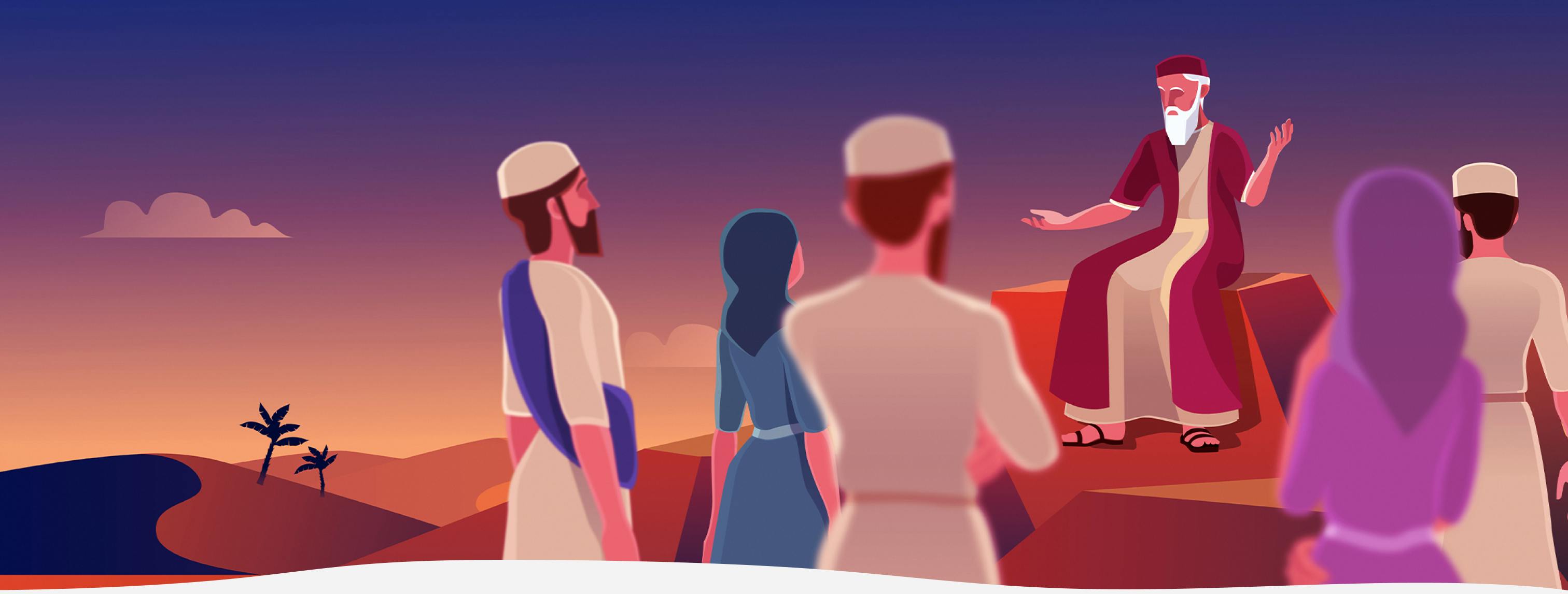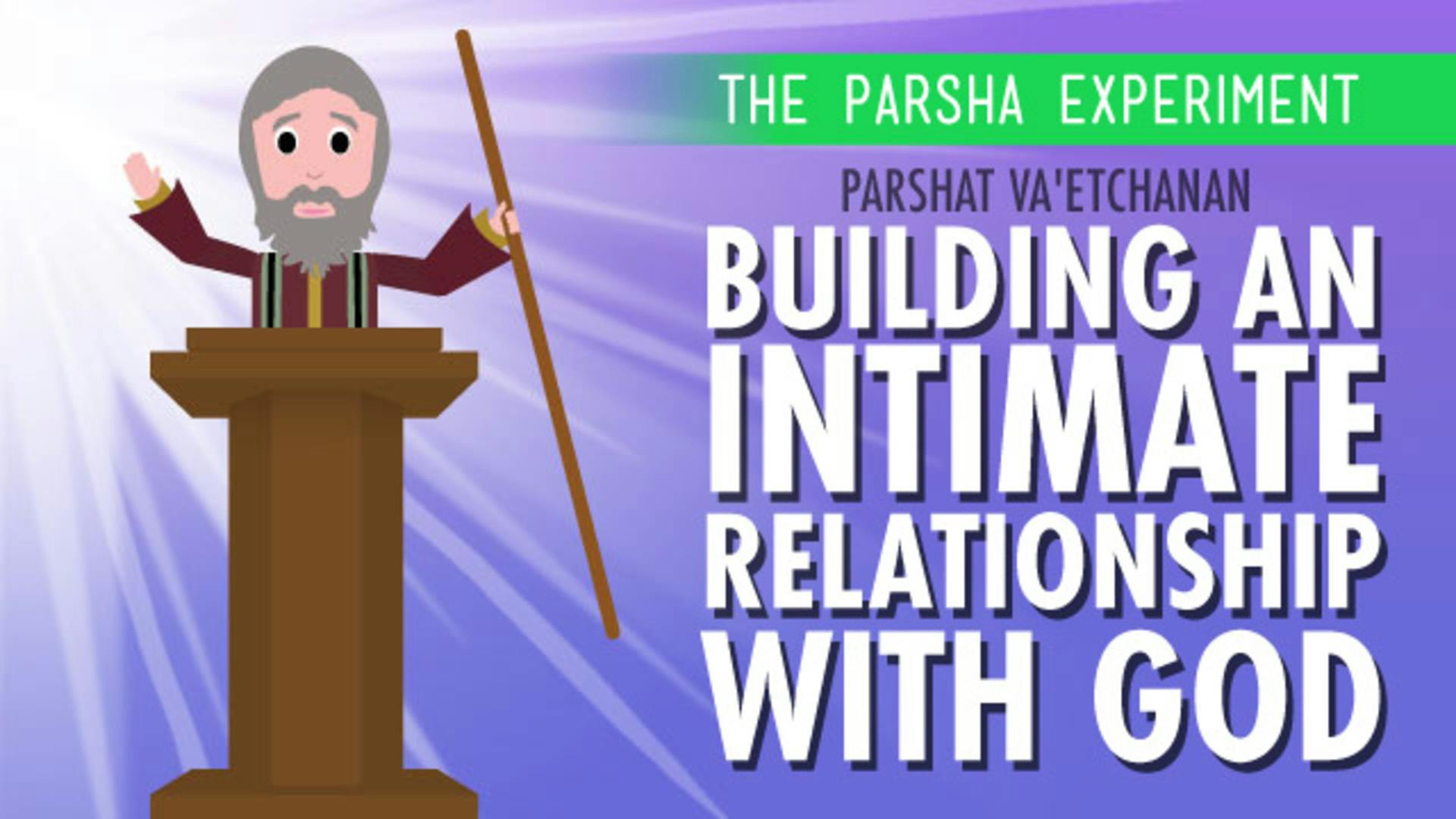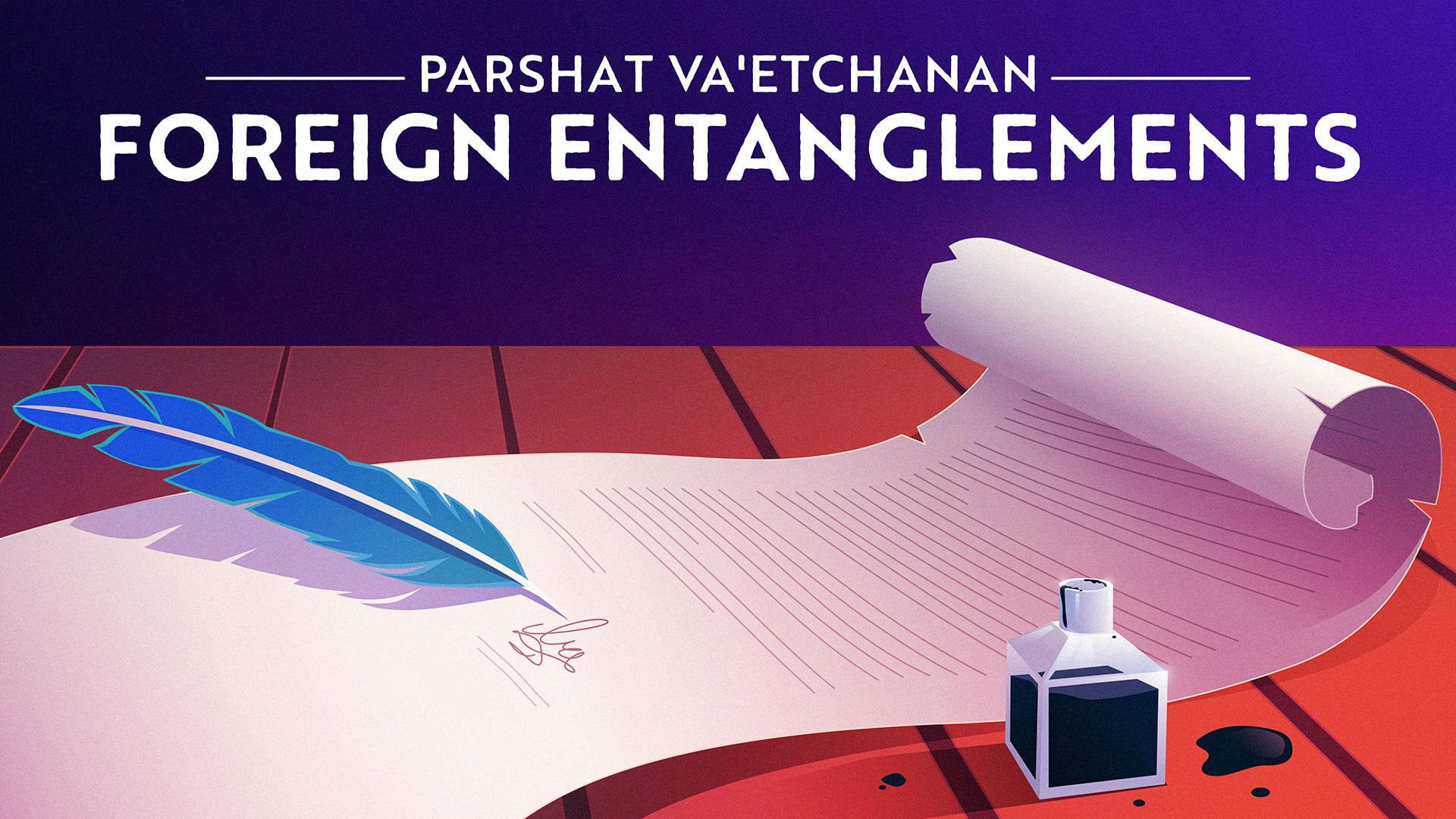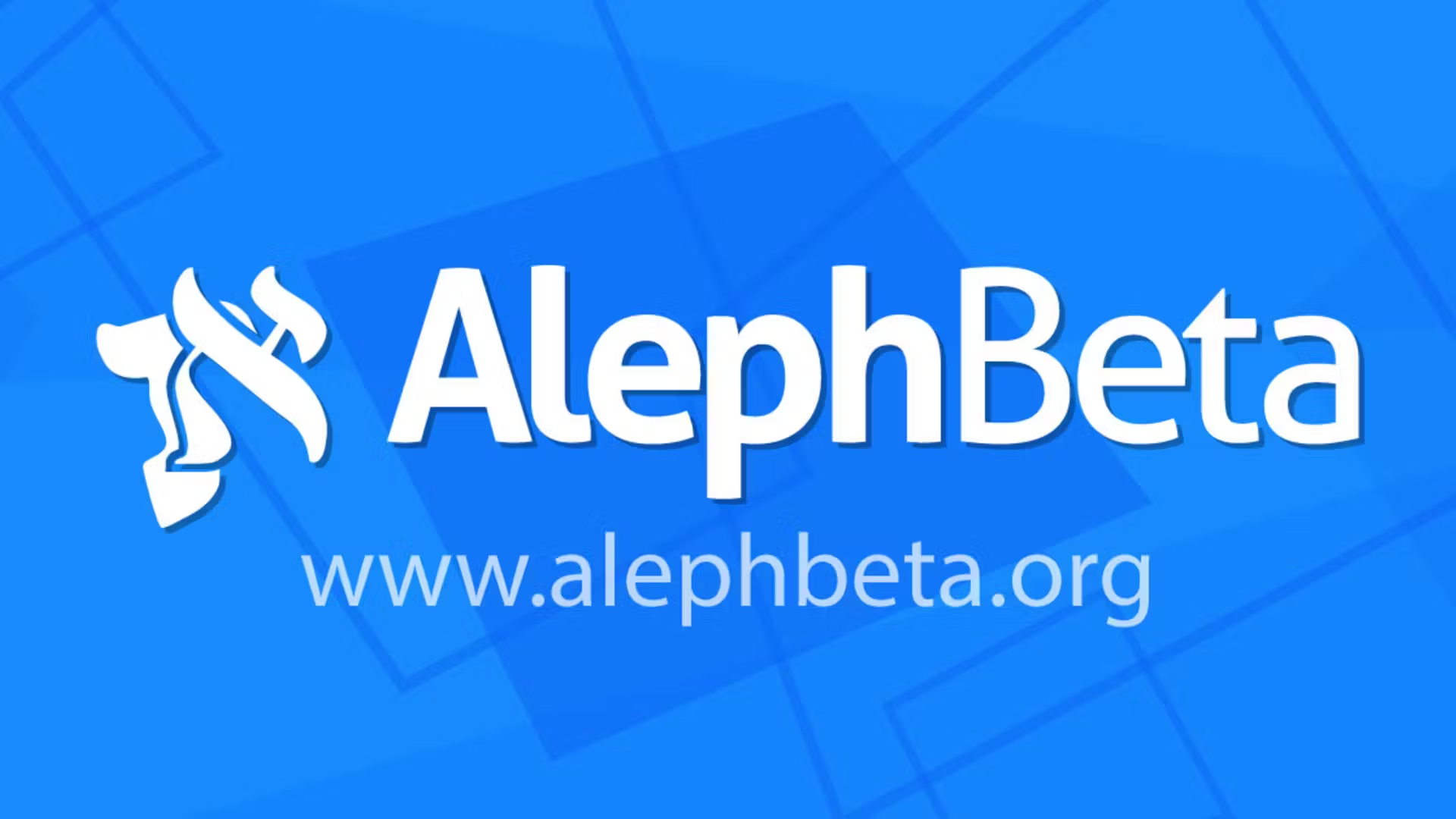
Dvar Torah Parshat Va’etchanan
What Does it Mean to be a Small Nation?
BY Evan Weiner | April 20, 2024 | 3 Minute Read
Parshat Va’etchanan
Towards the end of Parshat Vaetchanan, the Israelites are reminded that they’ll soon be entering the Promised Land. When they get there, they will have to fight with the seven Canaanite nations who are living there.
Israel and the Canaanites
Moshe details three prohibitions related to the Canaanite people:
1. לֹא־תִכְרֹת לָהֶם בְּרִית
Don’t make any covenants with them.
2. וְלֹא תְחָנֵּם
Don’t show them any special favor.
3. וְלֹא תִתְחַתֵּן בָּם
Don’t intermarry with them.
(Deuteronomy 7:2-3)
In other words, these laws are basically saying, hey Israelites, you need to keep your distance from these Canaanite nations. You’re a holy people, and we want to keep it that way. The next few verses continue this theme and issue a command to destroy any idolatrous altars these nations may leave behind.
A Surprising Twist
But then, as part of the very same speech, Moshe follows these laws with a statement that seems to come completely out of nowhere! He says:
לֹא מֵרֻבְּכֶם מִכָּל־הָעַמִּים חָשַׁק יְהוָה בָּכֶם וַיִּבְחַר בָּכֶם כִּי־אַתֶּם הַמְעַט מִכָּל־הָעַמִּים כִּי מֵאַהֲבַת יְהוָה אֶתְכֶם
Because, you’re actually the smallest of all the nations. It’s not because of your vast numbers that God desired you and chose you. Rather, it’s because of His great love for you.
(Deuteronomy 7:7)
Now, is that the next thing you’d expect Moshe to say? Don’t make deals with the Canaanites, don’t show them favor, don’t intermarry with them, and, oh, yeah, you’re really small, but that’s okay – God doesn’t care about that.
It’s totally out of left field. Everything here is about the Israelites keeping their distance from the nations of the land. What does the fact that the Israelites are small—and God loves them anyway—have to do with these laws about distancing themselves from the Canaanites?
What is the Connection?
Well, I actually think that being small does have something to do with making deals with foreign nations, showing them favor, and intermarrying. But to see that connection, we need to dig a little deeper.
You see, there’s another place in the Torah, a story, where we also encounter this idea of the Israelites being small. And the crazy thing is, all these prohibitions we have been talking about—making deals with Canaanite nations, showing favor, intermarrying—all of these themes come up in this story too! So maybe, if we see how everything fits together in that story, we can understand what’s going on here.
This other story is the rape of Dina in Genesis, and the response of Yaakov and his sons. What does that story have to do with Moses’s speech at the Torah? How does it explain the verse above? Continue to this video to find out!
More Parshat Va’etchanan Videos

What Is The Ten Commandments' Underlying Theme?
Video • 10 min
How do the Ten Commandments apply to our lives today? After all, most of them are not difficult to observe – “don’t steal… don’t kill” – these are not laws you need to think about daily. So what are we supposed to actually learn from the Ten Commandments? Rabbi Fohrman peels back the layers to uncover what lies at the heart of the Ten Commandments, a hidden theme that guides us to stronger relationships.

The Hidden Reason Moses Was Not Allowed Into The Promised Land
Video series • Part 1 of 2 • 12 min
This week is the second part of a series asking, really, why wasn't Moses really able to enter the land of Israel? Through a side-by-side comparison of two surprising stories – the sin of the spies, and Jethro's judges – we are shown an unexpected angle and come to a stronger understand of what Moses truly did wrong that didn't allow him to enter the land of Israel.

Building an Intimate Relationship With God
Video • 16 min
In Parshat Va'etchanan, Moses speaks, a lot – but it all seems so boring, and disconnected. The Torah is a book – and every sentence of that book fits together, like pieces in a puzzle. But how does that work, in this parsha? What is this parsha actually about?
More Printable Parshat Va’etchanan Guides
More on Parshat Va’etchanan
What is Aleph Beta?
Aleph Beta is a unique kind of Torah library. Led by our founder, Rabbi David Fohrman, we are dedicated to high-level, textual Torah learning for adults that is intellectually and spiritually sophisticated, that enlivens your Jewish practice and helps you forge a deeper connection to God. Whether you’ve been learning in yeshiva for years or you’re just beginning your Torah journey, you’re sure to find something meaningful and surprising waiting for you here.
Browse our library of over 1,000 beautifully produced animated videos, podcasts, deep dive courses, and printable guides. Topics include the weekly parsha, Jewish holidays & fast days, laws & mitzvot, prayers, relationships, big philosophical ideas and more. Have something to say at the Shabbos table that will amaze your family and guests and bring deep meaning into their lives.


